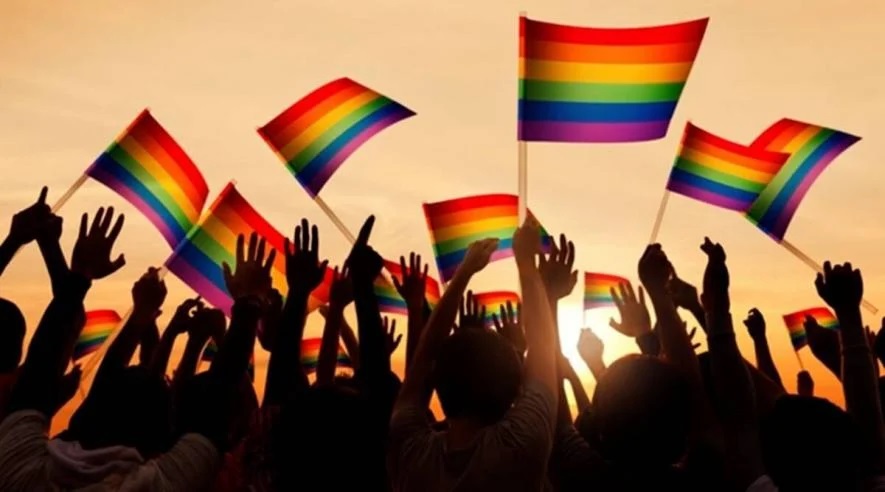Lok Sabha passed the Transgender Persons (Protection of Rights) Bill on 19th July 2019, according to which there is a prohibition against discrimination to trans-persons. The Bill prevents discrimination against a transgender person including denial of service or unfair treatment in relation to the following:
- Education
- Employment
- Healthcare
- Access to, or enjoyment of goods, facilities, and opportunities available to the public
- Right to movement
- Right to reside, rent, or otherwise occupy a property
- Opportunity to hold public or private office
- Access to a government or private establishment in whose care or custody a trans-gender person is
The Bill defines a trans-gender person as “one whose gender does not match the gender assigned at birth. It includes trans-men and trans-women, persons with intersex variations, gender queers, and persons with socio-cultural identities, such as kinnar and hijra. Intersex variations are defined to mean a person who at birth shows variation in his or her primary sexual characteristics, external genitalia, chromosomes, or hormones from the normative standard of a male or female body.”
Even when the bill was passed in Rajya Sabha on 26th November 2019, there were so many people who were protesting trans-gender rights legislation along with those who were celebrating our country’s sexual diversity. Calling the bill regressive, they urged lawmakers to reconsider the bill. An outrage also kicked off from the very community the bill was meant to safeguard.
Dr. Manish Jain, Executive Director, Kineer Services, also opines that the situation hasn’t changed since the Trans Rights Bill. He says, “It remains the same as neither the government bodies adapt themselves according to the bill nor do they take measures to enforce the said bill. The lack of defined punishments and a lop-sided approach make matter worse for the execution of the bill.”
The murder of gender justice
The newly introduced legislation was supposed to protect the right of this neglected community. However, Trans-activists claimed that it did the exact opposite. They said that it is a huge blow to India's already vulnerable trans-gender community and has affected the progress made over the last few years. According to them, it was a “murder of gender justice”.
The Transgender Persons (Protection of Rights) bill gives transgender persons a “right to self-perceived identity”. However, if they want to be officially recognized as “transgender”, then they have to register with the government. A trans-person has to submit proof of gender confirmation surgery to the government if they identify as a trans-woman or trans-man and are willing to be legally recognized as such.
“Laws are only as strong as the enforcing agencies. Making a law does not mean that it gets implemented. Registering an FIR for regular citizens for any concern is a challenge in itself, how would a trans-gender get a say in this? The best way to judge the strength of the bill would be to file an RTI to know how many trans-members have registered complaints. The answer would clarify how the bill has changed trans-lives,” Dr. Manish added.
Somehow, the Transgender Persons (Protection of Rights) Bill is burdening the trans-gender community by adding bureaucratic layers and red-tapism, as opined by gender and sexuality rights researchers. Moreover, the bill doesn’t provide any allocation for trans-genders in public education and jobs which the Supreme Court’s 2014 ruling had directed the government to do.
Talking about the rights given to the trans-gender community, Dr. Manish opines, “The bill has given legal approval to marriage and adoption but these do not even qualify as the top ten burning issues in the lives of trans-persons. We need to understand and work on fundamental rights first. The fight is still about roti, kapda aur makaan.”
Denied respectable opportunities
In our country, trans-people often face stigma and are systematically excluded from education and employment. In such circumstances, some feel that they have no choice but to turn to sex work. This has high health-related risks that lead to them being around 50 times more at risk of living with HIV as compared to the general population. The trans-gender community face discrimination even in accessing healthcare as well. Moreover, they face disproportionate public violence and police brutality.
Ankita, an out and proud trans-woman who is a Post-Placement and Sensitisation Associate at PeriFerry, talks about how trans-people are denied suitable work opportunities. She says that even when they get a job, they have to face severe discrimination at their workplaces. “Even the basic need of using a washroom sometimes becomes a challenge for them owing to certain illogical rules in some companies,” she adds.
As per the Transgender Persons (Protection of Rights) Bill, abusing trans-gender people is a punishable offence with a jail term of 6 months to 2 years. However, when it comes to cisgender, which means a person whose gender identity matches their sex at birth, child or woman is sexually abused, the Indian law has way more strict rules. The punishment can range from a life sentence to the death penalty in some cases. This gap in punishments somehow strengthens the idea that trans-lives are dispensable and of lesser value.
Even lawmakers found the bill contentious. Jaya Bachchan, a member of the upper house of parliament, said during a session, “Certification itself is discrimination. It’s a humiliation of a human being”.
Analysis of the new law: The Hits
By enacting this law, our country has adhered to the international standards for the protection of human rights envisaged by the Office of the United Nations High Commissioner for Human Rights in 2015, and recommended that countries begin, “[…] upon request to issue legal identity documents that reflect your preferred gender. Eliminate abuse of prerequisites, such as sterilization, forced treatment, and divorce. Similarly, the 2015 WHO report recommended that governments must “[…] take all necessary legislative, administrative and other measures to fully recognize each person’s self-defined gender identity, without medical requirements or discrimination on any grounds.”
The Transgender Persons (Protection of Rights) Bill is a step forward for India towards the protection of the rights and identity of trans-gender people. Slowly, we are moving towards a more progressive and inclusive society wherein opportunities will not be restricted based on someone’s gender.
And The Misses
There is imprisonment of only up to 2 years with a fine under the penalty for offences under the Trans Act. It seems to be insufficient for heinous crimes such as rape, sexual abuse or violence, sexual harassment or criminal assault.
Moreover, the act still remains unsatisfactory as it doesn’t provide a foundation for several other associated rights like marriage rights, adoption rights, pregnancy rights, etc. It’s clear that trans- people are not getting equal opportunities and rights.







.jpg)






